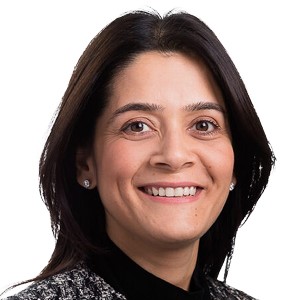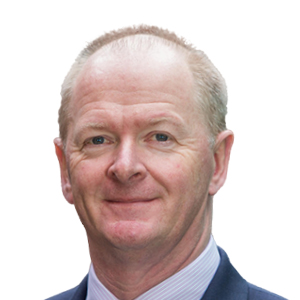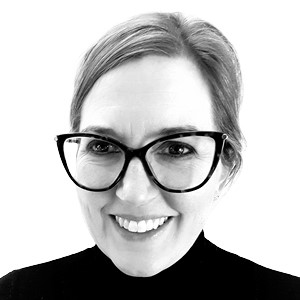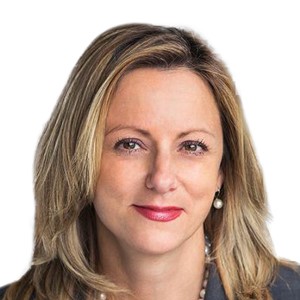The transition to the role of Group Chief People Officer (CPO) for the first time not only signifies a leap in professional responsibility but also heralds a new chapter in shaping an organisation’s culture, talent management and overall employee experience. Tasked with aligning the people strategy with the company’s overarching goals, a high-performing CPO will ensure every decision supports both the business objectives and the well-being of its workforce.
It’s a role that demands a blend of leadership acumen, empathy and strategic foresight, while often navigating through complex organisational dynamics. The CPO must demonstrate the ability to influence and collaborate with senior leadership and be attuned to the needs and aspirations of employees.
Here we speak to the Criticaleye Community on what it’s like to take on your first CPO role.
For anyone taking on any leadership position, it's important to reflect on the kind of leader you want to be.
When I took on my CHRO role, it was also my first global management and board position, and I knew there would be things that were new to me. There were also some technical aspects of the job where I needed to upskill myself. However, my biggest learning curve was being very thoughtful about the kind of leader I wanted to be. I was quite conscious of the leadership behaviours I needed to learn and unlearn. I was… thoughtful because I grew up under a different generation of leaders and I knew that some of what I learned from their leadership styles might not be as relevant in today's world of work.
Authenticity is key. The idea of leaders having all the answers is gone. Being able to show vulnerability and being comfortable saying, “Oh, we've got an interesting challenge. I don't have the answer. Let's talk about the best way of dealing with that.” I have found that being authentic and showing vulnerability when you don’t always have all the answers can be incredibly liberating.
Neil Hayward, Chair Industry People Board, British Horseracing Authority and Board Mentor, Criticaleye
The first thing I always try to encourage is to have belief in yourself that you are the right person: So, leave your imposter syndrome at the door. As a new CPO you are expected to offer some different viewpoints, and a fresh perspective.
The relationship with your C-Suite colleagues is important, and your relationship with the CEO is most important of all. Focus on making it work. Honesty is always the best policy, but the real skill is all about judging when to be honest and how honest. The ‘behind closed doors’ conversation is where you get the real relationship business done, not the set pieces such as at Executive Committee or Board. You should, as CPO, bring EQ as well as IQ to the top table.
You are now responsible for shaping the organisation’s HR strategy in its entirety. If you manage to connect that to either growing revenues, improving margins and cutting costs, then you will immediately stand out as a CPO who is commercially minded and making a tangible difference.
You don’t stop learning once you reach the C-Suite level. In fact, being promoted onto the top table simply accelerates your need to keep learning. You need to move beyond your own functional HR expertise and become an expert in other areas.
This position is pivotal, not just for managing human resources but for shaping the culture and future of the company. Your primary mission is to be a strategic partner to the executive team, driving initiatives that align people strategies with business objectives. The business landscape is constantly evolving, and so should your strategies.
Immerse yourself in understanding the business. Deep dive into the company’s financials, market position and long-term goals. This knowledge will allow you to tailor people strategies that directly support the company’s purpose. The role of the CPO is not just about policies and compliance; it’s about fostering a culture that drives performance and innovation.
Invest in your team. Surround yourself with talented HR professionals who are experts in their respective areas. Empower them, delegate effectively, and create an environment where they can thrive and innovate. This will give you space and time to gain a better understanding of the organisation, its core stakeholders, and what needs to change to drive the future strategy, something that’s vital when engaging not only with the CEO and leadership team, but the Board.
CPOs have the potential to make a profound impact on a company and its people. This is a transformative role and strong leadership will be instrumental in shaping a company’s future success.
Grace Palombo, Executive-vice President and CHRO, Great-West Lifeco
Understand the business strategy and check and stress test whether the HR strategy is embedded in it. Spend a lot of time on that before making any changes or jumping into anything. Take time as well to build relationships. Listen to the leaders and your HR team, then develop a thoughtful HR strategy to support the business.
Before you hit the go button on anything, ensure you have a solid HR function and make sure you have the best talent possible on the HR team. If you go into transformation or change, over-hire on your team. Bring in fully formed, high-powered, technically capable people. The mistake leaders sometimes make is not connecting the dots between what they need to deliver and the level of talent they need.
For anyone who aspires to senior HR leadership roles in public, even private companies, I recommend including Board work or preparing for Boards in your development plan. Sit on charity and not-for-profit Boards, do fundraising, do whatever you can and get exposed to it. That has always been a fantastic development tool for me.
It's given me exposure to lots of different industries. Most companies are trying to solve the same problems. It strengthened me as a CHRO from an experience and a style perspective. The most development I got was from learning how to truly think strategically and bring together the business and HR strategy.
Julie Harding, Former HR Director, Co-operative Bank and Board Mentor, Criticaleye
What I… wish I had known is that the Group HR role is completely different from any other HR role you might have done in the past. It's different in terms of how you apply your knowledge and experience. Your HR knowledge is the ticket to the game, and you have to have all of that, but as the Group HRD, it's what you do with that information that makes a difference.
For me, it was learning a whole other level of stakeholder management, with a lot more external parties than internal parties. I had to learn things like managing a new relationship with my CEO in a way that was built on trust and confidence, and was close, but not too close because you don't want to disenfranchise the rest of the executive team. I had to learn to spend much more time with an external focus. The hardest thing for me was making the time to think because it is about how you go about your job at that level that matters as much as what you actually do.
A prompt I received a long time ago and found very useful was that when I stepped up to the Group HRD role, I became an ambassador for the entire organisation, as opposed to in my HRD role, where I was an ambassador for HR.
It's that big step up being able to speak to the ambition, opportunities and threats across the entire organisation.
Bridgette Hall, Senior Editor, Criticaleye
-
Find our HRD Research here
-
Read our People and Performance Interview with Grace Palombo, Executive-vice President and CHRO, Great-West Lifeco, here
-
Listen to our Inspiring Leaders Podcast with Tanuj Kapilashrami, Chief Strategy & Talent Officer, Standard Chartered, here



